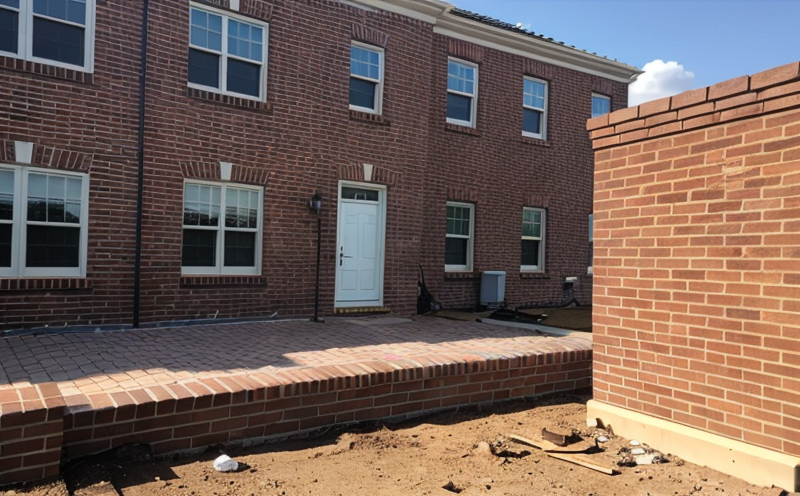ASTM C67 Compressive Strength Testing of Bricks
The ASTM C67 standard provides a comprehensive set of procedures to determine the compressive strength of brick units. This test is crucial for ensuring that bricks meet the required performance standards in various building and infrastructure applications.
Compressive strength testing involves subjecting samples to axial compression until failure occurs, which allows engineers and quality managers to assess the durability and integrity of the material. The procedure outlined in ASTM C67 ensures consistency across different laboratories by standardizing specimen preparation, loading conditions, and data analysis techniques.
The test is particularly relevant for assessing bricks used in construction projects where structural stability is paramount. By measuring compressive strength, stakeholders can verify that the materials they choose will withstand expected loads without compromising safety or performance. This service plays a vital role in maintaining quality control throughout the supply chain, from manufacturer to end user.
In practice, ASTM C67 specifies detailed instructions for preparing and testing specimens. Specimens are typically cut from full-size bricks using specified dimensions, ensuring that they accurately represent the properties of the parent material. The test setup involves placing these prepared samples into a compression machine designed to apply controlled loads up to failure.
Once the specimen reaches its breaking point, the maximum load it can sustain is recorded as its compressive strength. Reporting this value helps stakeholders make informed decisions about product suitability based on empirical data rather than assumptions or subjective judgments.
The results from ASTM C67 testing are often used during design phases to select appropriate materials for specific projects. For instance, architects and engineers might reference these values when specifying brick types needed for load-bearing walls or other critical structural elements.
Furthermore, compliance officers benefit greatly from this service as it ensures adherence to relevant regulations governing construction practices. Meeting such standards enhances reputation while protecting against potential liabilities associated with substandard materials.
Benefits
The primary advantage of ASTM C67 compressive strength testing lies in its ability to provide objective evidence regarding the quality and performance characteristics of bricks. This information serves multiple purposes:
- Quality Control: Ensures that each batch of bricks meets specified technical requirements, thus maintaining consistent product quality.
- Regulatory Compliance: Helps clients meet regulatory standards related to construction materials, enhancing compliance and reducing risk.
- Material Selection: Provides reliable data for selecting the most suitable brick type based on project-specific needs.
- Risk Management: Identifies potential issues early in the supply chain, minimizing costly delays or failures later on.
Industry Applications
| Application | Description |
|---|---|
| Load-bearing Walls | Bricks tested according to ASTM C67 are commonly used in constructing load-bearing walls due to their ability to resist significant compressive forces. |
| Retaining Structures | These structures rely on bricks' capacity to counteract lateral earth pressures effectively. Testing according to ASTM C67 ensures these elements perform reliably over time. |
| Foundation Walls | Brick walls at foundations must be robust enough to support the entire structure above them. Compressive strength testing helps ensure this crucial component's integrity. |
| Historical Restoration Projects | In preserving historical buildings, it is essential to use bricks with similar properties to those originally used. ASTM C67 testing aids in selecting appropriate materials for such restorations. |
International Acceptance and Recognition
The ASTM C67 standard enjoys widespread recognition across many countries, particularly those following North American building codes. Its acceptance is due to its rigorous methodology and consistent results, which are highly valued by regulatory bodies worldwide.
ISO/IEC 17025 accreditation ensures that our laboratory adheres to strict quality management systems, making ASTM C67 testing even more trustworthy for international clients. This certification guarantees unbiased test results and promotes confidence in the outcomes produced.
Many governments specify ASTM C67 as a mandatory requirement when specifying brick products for public works projects. Compliance with this standard is not only beneficial but also necessary to ensure compliance with local regulations and codes.





